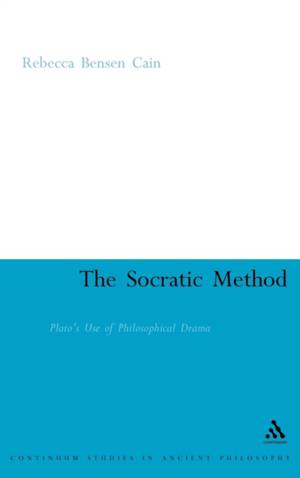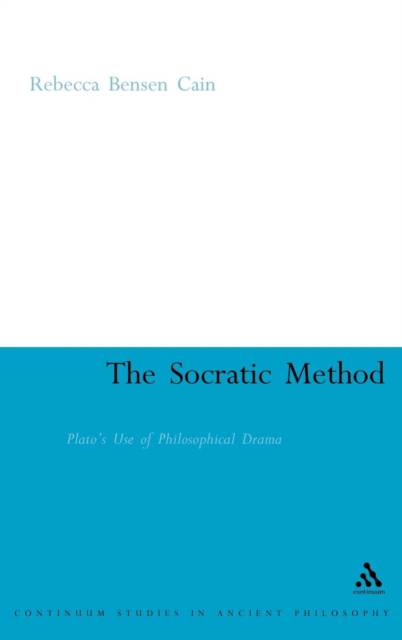
- Afhalen na 1 uur in een winkel met voorraad
- Gratis thuislevering in België vanaf € 30
- Ruim aanbod met 7 miljoen producten
- Afhalen na 1 uur in een winkel met voorraad
- Gratis thuislevering in België vanaf € 30
- Ruim aanbod met 7 miljoen producten
Zoeken
Omschrijving
This book develops a new account of Socratic method, based on a psychological model of Plato's dramatic depiction of Socrates' character and conduct. Socratic method is seen as a blend of three types of philosophical discourse: refutation, truth-seeking, and persuasion. Cain focuses on the persuasive features of the method since, in her view, it is this aspect of Socrates' method that best explains the content and the value of the dialectical arguments. Emphasizing the persuasive aspect of Socratic method helps us uncover the operative standards of dialectical argumentation in fifth-century Athens. Cain considers both the sophistic style of rhetoric and contentious debate in Socrates' time, and Aristotle's perspective on the techniques of argument and their purposes. An informal, pragmatic analysis of argumentation appropriate to the dialectical context is developed. We see that Socrates uses ambiguity and other strategic fallacies with purposeful play, and for moral ends. Taking specific examples of refutations from Plato's dialogues, Cain links the interlocutors' characters and situations with the dialectical argument that Socrates constructs to refute them. The merit of this interpretation is that it gives broad range, depth, and balance to Socrates' argumentative style; it also maintains a keen sensitivity to the interlocutors' emotional reactions, moral values, and attitudes. The book concludes with a discussion of the overall value, purpose, and success of Socratic method, and draws upon a Platonic/Socratic conception of the soul and a dialectical type of self-knowledge.
Specificaties
Betrokkenen
- Auteur(s):
- Uitgeverij:
Inhoud
- Aantal bladzijden:
- 148
- Taal:
- Engels
- Reeks:
- Reeksnummer:
- nr. 8
Eigenschappen
- Productcode (EAN):
- 9780826488916
- Verschijningsdatum:
- 26/04/2007
- Uitvoering:
- Hardcover
- Formaat:
- Genaaid
- Afmetingen:
- 162 mm x 234 mm
- Gewicht:
- 385 g

Alleen bij Standaard Boekhandel
+ 746 punten op je klantenkaart van Standaard Boekhandel
Beoordelingen
We publiceren alleen reviews die voldoen aan de voorwaarden voor reviews. Bekijk onze voorwaarden voor reviews.











